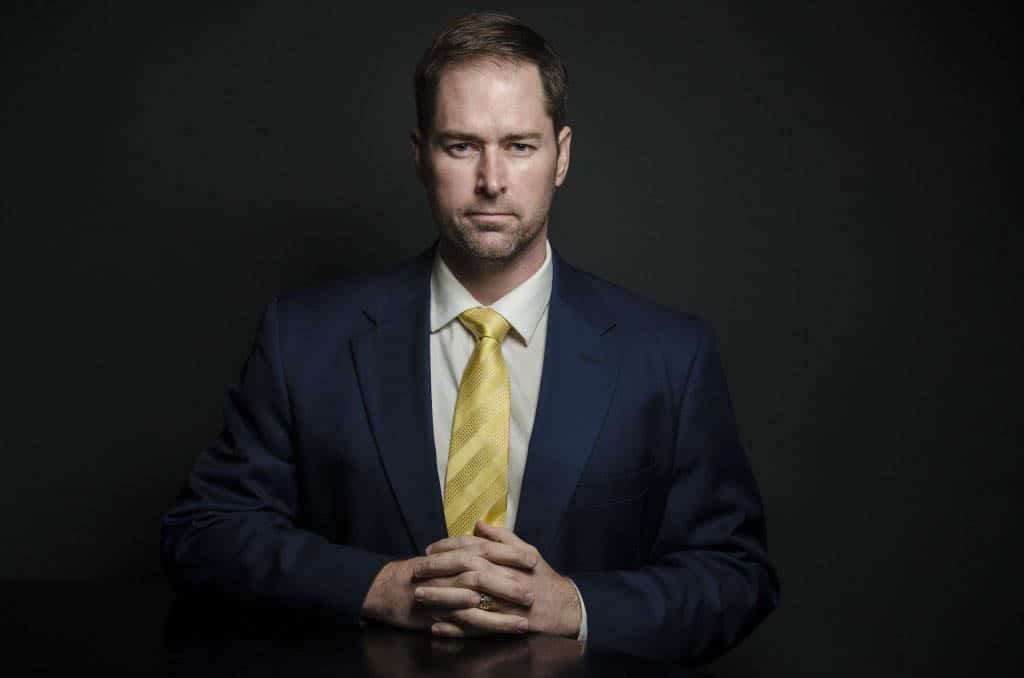Chapter 11 Bankruptcy Lawyers - Nick Davis Law
Chapter 11 Bankruptcy Practice AreasChapter 11 is more than just a lifeline—it’s a strategic tool to help businesses and high-income individuals regain control of their financial future while staying operational.
Serving Montgomery, Harris, Fort Bend, Brazos, Grimes, Waller, Walker & Surrounding Counties
Chapter 11 Bankruptcy Practice Areas in The Woodlands, Katy, Houston, College Station, Texas

What is Chapter 11 Bankruptcy?
Chapter 11 bankruptcy allows businesses and individuals with significant debt to reorganize and repay their debts over time while keeping control of their assets. Unlike Chapter 7, which involves liquidation, Chapter 11 provides flexibility, allowing you to continue operations and craft a repayment plan tailored to your specific situation.
Key Differences Between Chapter 11 and Chapter 7
Chapter 11 focuses on reorganization rather than liquidation. This allows companies and individuals to keep operating and avoid losing essential assets. Businesses can retain control as a debtor-in-possession, meaning you can continue running your business while formulating a plan to repay creditors.
Who Qualifies for Chapter 11?
Chapter 11 is available to businesses of all sizes and individuals with high debts or income who don’t qualify for Chapter 7 or 13. Whether you own a small business or have significant personal assets, Chapter 11 offers a chance to restructure debts without losing control.
Benefits of Chapter 11 for Business Owners
- Keep your business running: Chapter 11 allows you to continue operating, which can preserve jobs, client relationships, and business value.
- Negotiate better terms: Use Chapter 11 as a tool to renegotiate contracts, leases, and debts to better suit your financial reality.
Chapter 11 for Individuals: What You Need to Know
For individuals, Chapter 11 offers a path to restructure debt without losing assets like real estate, investments, or retirement funds. If your debt is too high for Chapter 13, but you want to avoid Chapter 7 liquidation, Chapter 11 could be the solution you need.
Don’t wait until it’s too late to act. Contact Nick Davis Law Bankruptcy Relief Lawyers today for a free consultation at (936) 262-7474 and assistance in filing for Bankruptcy in The Woodlands, Houston, Katy, and College Station.
Filing for Chapter 11 Bankruptcy in Texas
Filing for Chapter 11 in Texas involves specific legal considerations. Here’s how Nick Davis Law helps you navigate the Lone Star State’s unique process.
Texas-Specific Considerations in Chapter 11 Cases
Texas bankruptcy laws, like its homestead exemption, offer unique advantages for personal asset protection during bankruptcy. We’ll ensure that these laws work to your benefit.
Requirements and Key Documents for Filing
When filing for Chapter 11, you need to submit key documents like financial statements, schedules of assets and liabilities, and a proposed reorganization plan. Our team at Nick Davis Law will help ensure all paperwork is complete and timely filed.
The Chapter 11 Process Explained: From Filing to Confirmation
Chapter 11 starts with filing a petition and continues through a series of legal steps, including a 341 creditors’ meeting, plan submission, and confirmation by the court. We’ll guide you through every stage, ensuring that your interests are protected.
Timeline of Chapter 11: Key Milestones to Expect
Chapter 11 can take anywhere from a few months to several years, depending on the complexity of your case. We’ll give you a realistic timeline so you know what to expect at each step.
Ready to begin your Chapter 11 journey? Contact Nick Davis Law at (936) 262-7474 to start your filing today.
OVERVIEW OF CHAPTER 11
FILING FOR CHAPTER 11 BANKRUPTCY
CHAPTER 11 FOR BUSINESSES
CHAPTER 11 FOR INDIVIDUALS
DEVELOPING A CHAPTER 11 REORGANIZATION PLAN
DEALING WITH CREDITORS IN CHAPTER 11
MANAGING ASSETS AND OPERATIONS DURING CHAPTER 11
BANKRUPTCY LITIGATION
ADDITIONAL BANKRUPTCY PRACTICE AREAS
EXITING CHAPTER 11 BANKRUPTCY
ALTERNATIVES TO BANKRUPTCY
SPECIAL CHAPTER 11 TOPICS
Chapter 11 Bankruptcy for Businesses
Chapter 11 for Businesses: Restructuring for Long-Term Success
Chapter 11 allows businesses to thrive while restructuring debts. Let us help you guide your business through this complex process.
Restructuring Your Business Through Chapter 11
Chapter 11 gives businesses a chance to restructure debts, reduce interest rates, and extend payment deadlines while continuing day-to-day operations.
How Chapter 11 Affects Employees and Vendors
Your employees’ wages and benefits can often be protected during Chapter 11, and key vendor contracts can be renegotiated to ease financial strain.
Chapter 11 and Business Operations: Continuing During Bankruptcy
One of the key benefits of Chapter 11 is that your business remains operational. You’ll maintain control as a debtor-in-possession, and our team will ensure you meet legal obligations without disrupting your operations.
Debtor-in-Possession Financing: What Is It and How Does It Work?
Debtor-in-possession (DIP) financing allows businesses to secure new lines of credit during bankruptcy. This lifeline can be crucial for maintaining cash flow and stabilizing your business during restructuring.
Want to keep your business running while reorganizing? Contact Nick Davis Law today at (936) 262-7474.
Chapter 11 for Individuals
Chapter 11 for High-Income Individuals: Managing Debt Without Losing Assets
Chapter 11 is not just for businesses—it’s also a powerful tool for individuals who want to reorganize debt while keeping valuable personal assets.
High-Income Individuals Filing Chapter 11: Pros and Cons
Chapter 11 allows individuals with high income or significant assets to reorganize personal debts without losing their homes, investments, or retirement accounts.
Debt Restructuring for Individuals vs. Chapter 7 or 13
While Chapter 7 involves liquidation and Chapter 13 has strict repayment plans, Chapter 11 offers flexibility, letting you negotiate repayment terms over time based on your financial reality.
Personal Asset Protection in Chapter 11
You can safeguard personal assets, including real estate and investments, by using Chapter 11 to create a customized reorganization plan that keeps your property intact.
Paying Off Debt Over Time Under Chapter 11 Reorganization
Chapter 11 allows individuals to gradually pay off debt through a repayment plan that reflects their income, protecting both their credit and assets.
Need help restructuring your personal finances without losing your assets? Contact Nick Davis Law at (936) 262-7474 today.
Developing a Chapter 11 Reorganization Plan
Creating a Successful Chapter 11 Reorganization Plan: Your Blueprint for Recovery
The foundation of a successful Chapter 11 case is a solid, feasible reorganization plan. Here’s how we can help you build a winning strategy.
How to Create a Feasible Repayment Plan
A well-crafted reorganization plan should balance your creditors’ interests with your financial reality. We’ll help you develop a plan that is both realistic and acceptable to the court.
Gaining Approval for Your Chapter 11 Plan from Creditors and the Court
After developing a plan, creditors must vote to approve it, followed by confirmation from the court. Our legal team will negotiate on your behalf and ensure the plan meets all legal criteria.
What Happens if Your Chapter 11 Plan is Rejected?
If the reorganization plan is rejected, you have options, including modifications or converting to Chapter 7. We’ll be by your side, ensuring that you get back on track.
Modifying Your Plan During Chapter 11 Bankruptcy
Circumstances change—if your financial situation shifts, we can help you modify your Chapter 11 plan to keep your reorganization on course.
Let us help you create a reorganization plan that works. Contact Nick Davis Law at (936) 262-7474 today.
FAQ
Frequently Asked Questions
How Does Chapter 11 Affect Personal Guarantees?
Chapter 11 can discharge or restructure personal guarantees, but it depends on how they are handled in the reorganization plan. Our team can help protect your personal liability.
Can Chapter 11 Help Save My Business from Foreclosure?
Yes, Chapter 11 can stop foreclosure and give your business time to reorganize its debts, including mortgage obligations.
How Long Can a Business Operate Under Chapter 11?
A business can operate under Chapter 11 as long as it meets court obligations and is moving forward with its reorganization plan. The process can take months or years, depending on the complexity.
Is Chapter 11 Right for Small Business Owners?
Small business owners can benefit from Chapter 11 by restructuring debt while keeping their business operational, especially under Subchapter V, which simplifies the process.
Can Chapter 11 bankruptcy protect my business from environmental liability claims?
Chapter 11 can provide temporary relief from environmental liability claims, as these types of lawsuits are typically paused during the bankruptcy process due to the automatic stay. However, unlike most unsecured debts, environmental liabilities may not be fully dischargeable in bankruptcy, especially if there is ongoing damage or government fines involved. The court will assess whether a reorganization plan adequately addresses these claims. In some cases, the business may be required to set aside funds or continue cleanup efforts as part of the reorganization process.
How does Chapter 11 bankruptcy impact vendor contracts and supply chain agreements?
In Chapter 11, you have the power to either assume or reject certain vendor contracts and supply agreements. If a contract is critical to your operations, you can assume it and continue working with that vendor, often renegotiating more favorable terms as part of your reorganization plan. Conversely, if a contract is no longer beneficial or is too costly, you can reject it, potentially freeing your business from burdensome obligations. However, rejecting contracts could lead to legal claims from the vendor, which need to be managed carefully within the bankruptcy process. It’s essential to work closely with an attorney to evaluate which contracts should be retained or discarded.
Can Chapter 11 bankruptcy help me sell part of my business?
Yes, Chapter 11 can be an effective tool for selling parts of your business while keeping the remainder operational. Through a process called a Section 363 sale, businesses in Chapter 11 can sell assets, such as divisions or properties, with court approval. This can provide the liquidity needed to pay off creditors and keep the core business afloat. The sale is usually free of any liens or claims, making the assets more attractive to potential buyers. A well-planned 363 sale can help struggling businesses trim unprofitable parts and focus on what works, while still operating under the protection of Chapter 11.
How does Chapter 11 bankruptcy impact vendor contracts and supply chain agreements?
In Chapter 11, you have the power to either assume or reject certain vendor contracts and supply agreements. If a contract is critical to your operations, you can assume it and continue working with that vendor, often renegotiating more favorable terms as part of your reorganization plan. Conversely, if a contract is no longer beneficial or is too costly, you can reject it, potentially freeing your business from burdensome obligations. However, rejecting contracts could lead to legal claims from the vendor, which need to be managed carefully within the bankruptcy process. It’s essential to work closely with an attorney to evaluate which contracts should be retained or discarded.
What role does the U.S. Trustee play in a Chapter 11 bankruptcy case?
The U.S. Trustee acts as an overseer in Chapter 11 cases to ensure compliance with bankruptcy laws. They review your reorganization plan, monitor your business’s financial progress, and may raise objections if they believe your plan isn’t feasible or equitable for creditors. They’ll also ensure you’re meeting reporting requirements, such as filing monthly operating reports, and that you’re paying all required fees. The U.S. Trustee’s goal is to make sure the bankruptcy process is transparent and that the interests of creditors and other stakeholders are properly represented.
Can I raise new capital or take out loans while in Chapter 11?
Yes, you can raise new capital or obtain financing while in Chapter 11, but any such actions must be approved by the court. This type of financing is known as debtor-in-possession (DIP) financing, and it allows your business to continue operating while undergoing reorganization. DIP financing is often essential for businesses that need an immediate cash infusion to cover operating expenses, pay employees, or purchase inventory. Lenders offering DIP financing typically receive priority repayment status, meaning they’re paid back before other creditors, which makes this type of loan more attractive to potential financiers.
What happens if my Chapter 11 reorganization plan is not approved by the creditors?
If your creditors reject your proposed reorganization plan, you still have options. You can attempt to negotiate with the creditors to modify the plan to better meet their concerns, or you can pursue a cramdown process. In a cramdown, the court approves your plan over the objections of certain creditors as long as the plan is considered fair and equitable under bankruptcy law. The court typically looks at whether the plan offers a reasonable repayment structure and ensures that secured creditors are paid at least as much as the value of the collateral securing their loans. An experienced attorney can help guide you through these negotiations or the cramdown process.
How will Chapter 11 bankruptcy affect my ability to attract future investors?
Chapter 11 can create uncertainty for potential investors, but if handled properly, it can also signal that you’re taking proactive steps to reorganize and stabilize the business. Many investors understand that Chapter 11 is a legal tool to reduce debt and emerge as a healthier company. A well-executed reorganization plan can make your business more attractive to future investors by lowering liabilities, streamlining operations, and improving cash flow. Transparency with investors about your recovery strategy and post-bankruptcy goals is key to restoring confidence.
How does Chapter 11 bankruptcy impact the personal assets of business owners?
In most cases, Chapter 11 bankruptcy is designed to protect the business entity, not the personal assets of its owners. However, if you’ve personally guaranteed any business debts, those guarantees could put your personal assets at risk, depending on how they’re handled in the reorganization plan. It’s possible to negotiate the treatment of personal guarantees in Chapter 11, and in some cases, those obligations can be restructured or even discharged. Additionally, sole proprietors may find their personal assets more entwined with their business, so it’s critical to work with your attorney to assess and protect your personal liability.
Can a business reorganize under Chapter 11 if it is still profitable?
Yes, a business can file for Chapter 11 even if it is still profitable but struggling with unsustainable debt. In some cases, businesses may generate positive revenue but find that high debt service, vendor obligations, or other liabilities are choking cash flow. Filing for Chapter 11 can give a profitable business the breathing room it needs to restructure debt, renegotiate contracts, or shed unprofitable assets without shutting down operations. The goal is to emerge from Chapter 11 in a stronger financial position, able to continue turning a profit without the same debt pressures.
How are employee wages and benefits handled in Chapter 11 bankruptcy?
Employee wages and benefits typically continue as normal during a Chapter 11 bankruptcy, and these obligations are given priority in the reorganization plan. This means that employees will generally be paid for their work and retain their benefits, such as health insurance, during the bankruptcy process. However, if the business has back wages or unpaid benefits owed to employees before filing, those may be treated as priority claims, meaning they are paid before other unsecured debts. If layoffs or changes to employee benefits are part of the reorganization, those decisions must be approved by the bankruptcy court.
What if my business can’t meet its obligations under the Chapter 11 reorganization plan?
If your business cannot meet the obligations outlined in the reorganization plan, you may have the option to modify the plan with court and creditor approval. However, if the financial situation deteriorates to the point where reorganization is no longer feasible, the case could be converted to a Chapter 7 liquidation. In Chapter 7, the business would be shut down, and its assets sold to pay creditors. It’s important to monitor your business’s performance closely during Chapter 11 to ensure you stay on track with your repayment obligations. Working with an attorney and financial advisor can help you adjust strategies if challenges arise.
From the Blog
Recent Articles
Take Control of Your Financial Future Today
FLEXIBLE APPOINTMENTS | PAYMENT PLANS
Have more questions about Chapter 11? Contact Nick Davis Law at (936) 262-7474 for trusted answers and personalized legal advice.
At Nick Davis Law, we understand that bankruptcy is a complex and emotional process. Whether you’re an individual facing overwhelming personal debt or a business looking to restructure, we’re determined to guide you through every step. Bankruptcy is not the end—it’s the beginning of a new, more secure financial future.
Get a Free Consultation Now
Contact Nick Davis Law, serving The Woodlands, Katy, Houston, College Station and surrounding cities and counties. Take control of your financial future today—call us at (936) 262-7474. Our Montgomery, Harris, Fort Bend, Walker, Brazos, Grimes, Waller County Bankruptcy Lawyers regularly offer After-Hour & Weekend Phone and Virtual Consults and Payment Plans.
Contact us
Nick Davis Law
26418 Oak Ridge Dr.
The Woodlands, TX 77380
(936) 262-7474
The Woodlands, Texas
26418 Oak Ridge Dr.
The Woodlands, TX 77380
(936) 262-7474
Appointments Only
Bryan | College Station, Texas
750 William D. Fitch Pkwy, Ste 210
College Station, TX 778455
(979) 417-2220
Business Hours
Mon - Fri 8:00 am to 6:00 pm
Our Mission
The Trusted Family, Divorce, Bankruptcy, CPS, and Small Business Lawyers at Nick Davis Law are dedicated to providing the best and most efficient representation possible to our clients to achieve their goals quickly and cost effectively. Nick Davis Law maintain offices in The Woodlands, Katy, Texas and Bryan | College Station and serve all of Montgomery County, Brazos County, Walker County, Waller County, Grimes County, Washington County, Burleson County, San Jacinto County, Liberty County, Harris County, and surrounding counties.

 Nick Davis Law is a firm dedicated to helping individuals with all their family law needs and serves Montgomery, Harris, Waller, Grimes, Walker, Brazos, Washington, Burleson, Fort Bend and surrounding counties.
Nick Davis Law is a firm dedicated to helping individuals with all their family law needs and serves Montgomery, Harris, Waller, Grimes, Walker, Brazos, Washington, Burleson, Fort Bend and surrounding counties. 

